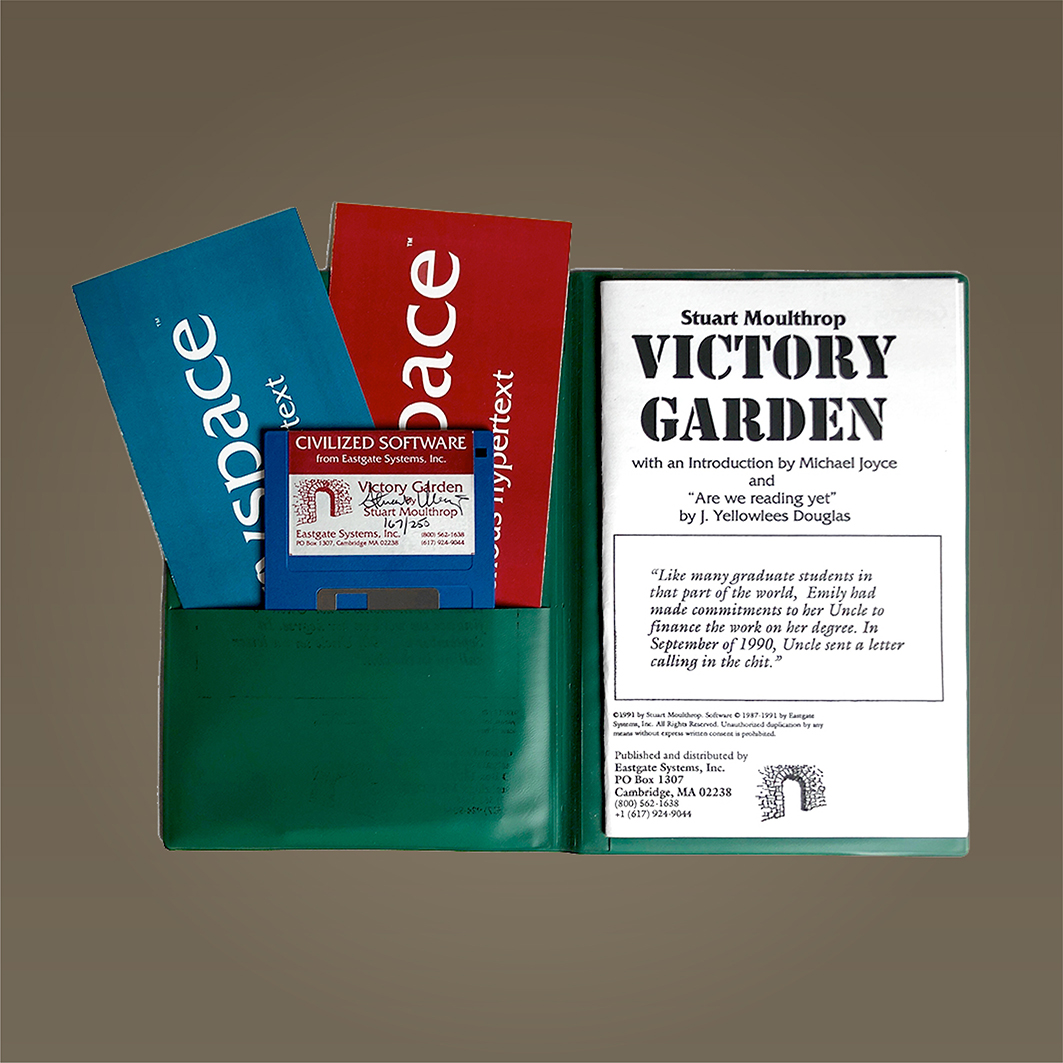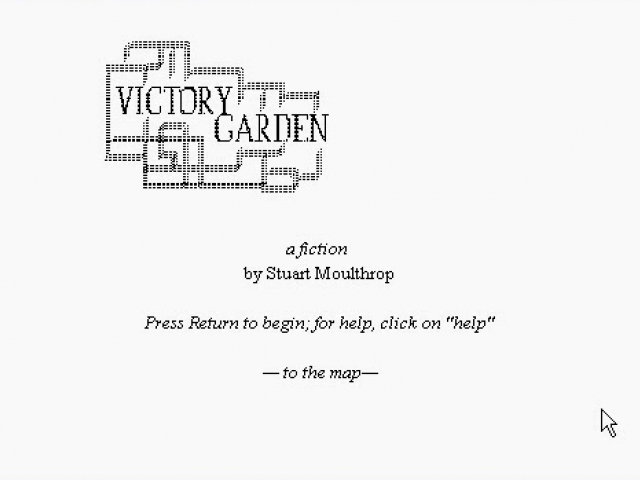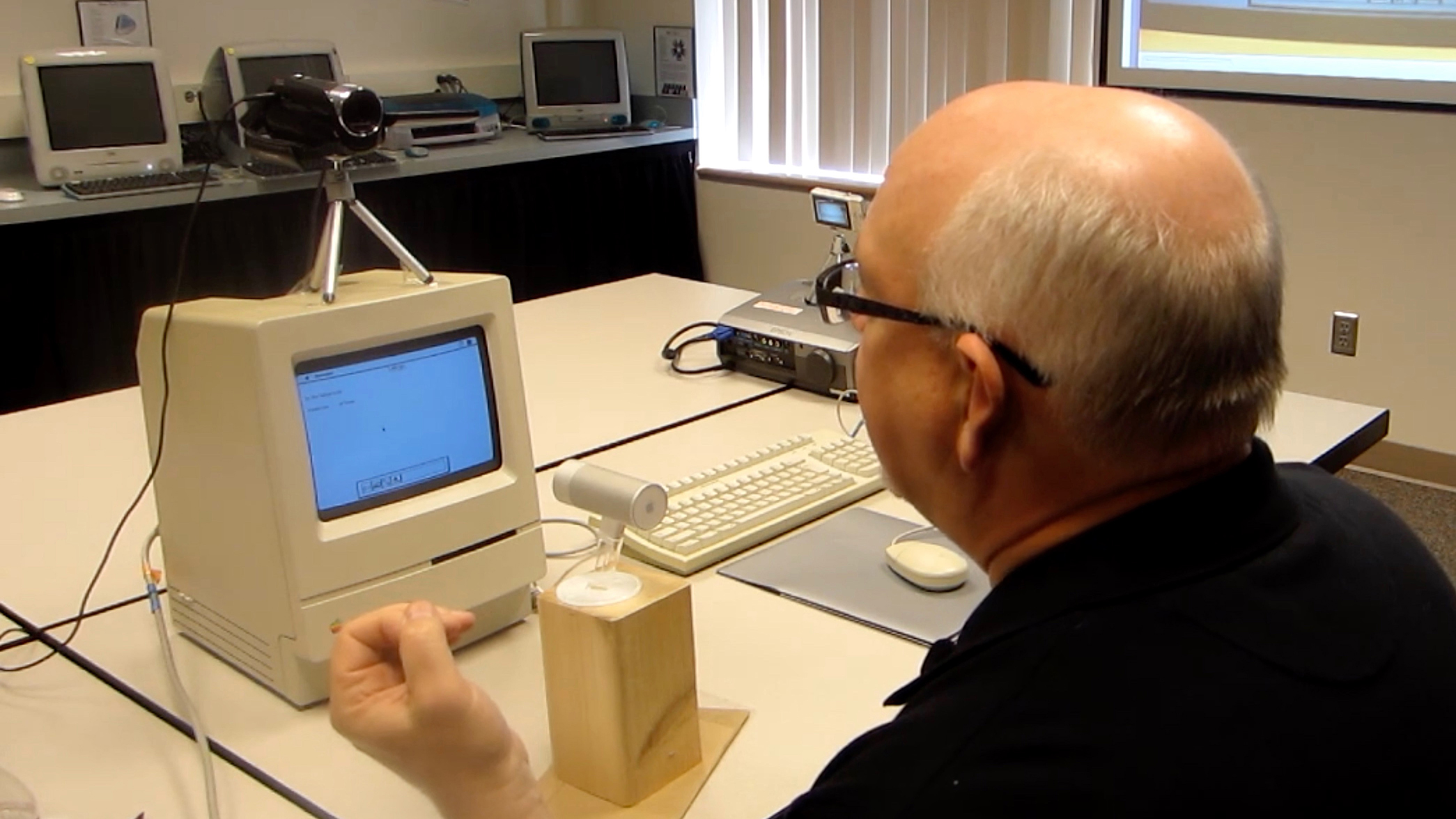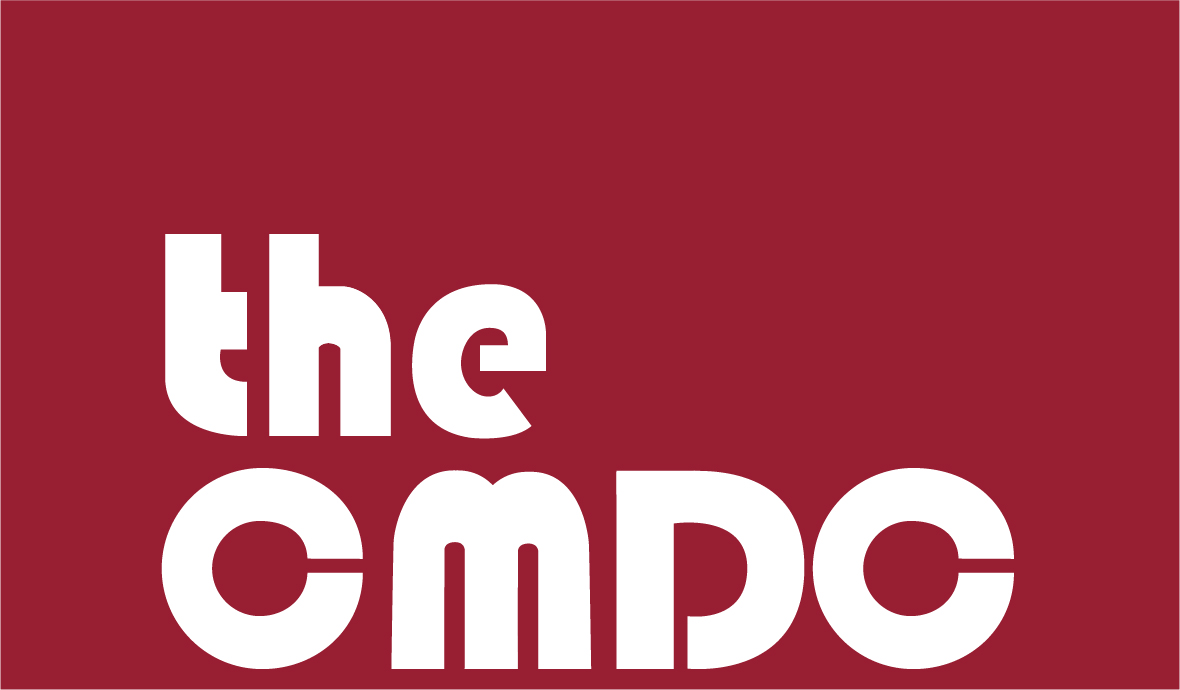History of Victory Garden
The history of Victory Garden is inextricably linked to the early days of stand-alone computing and hypertext authoring systems. As early as 1985 Moulthrop was introduced to hypertext fiction when he received his first copies of the Storyspace hypertext authoring system created by Michael Joyce, Jay David Bolter, and John B. Smith and Joyce’s own hypertext novel, afternoon, a story. Moulthrop’s Yale PhD dissertation contains an 18-page coda on the work, which his dissertation advisor, J. Hillis Miller, called the best part of the project. Upon its publication in 1991, Victory Garden was hailed by critic Robert Coover of The New York Times Review of Books it as "benchmark" for digital writing.
Cultural Significance

The period in which Victory Garden emerged and documents in its story holds much importance today. The late 1980s until the introduction of the web browser in the mid 1990s saw print-based artists experimenting with the new electronic medium made possible by the personal computer. Authoring systems, like HyperCard, Hypergate, Intermedia, Narrabase, and Storyspace, offered creative platforms for storytelling and poetics. Judy Malloy’s Uncle Roger (1986-88) and Michael Joyce’s afternoon, a story (1987, 1990) were followed by Moulthrop’s Victory Garden (1991), Sarah Smith’s King of Space (1991) and other hypertext novels that led to the awareness that the late age of print was giving way to the digital age.


The Novel's Storyline

Victory Garden remains one of the only works of hypertext fiction that addresses the turmoil wrought by war on those both serving in battle and staying behind. While the plot focuses much attention on the relationships of people from the fictional university town called Tara, the Middle East serves as a backdrop for the mood and tone of the story. Readers remembering television scenes of American troops pouring into Iraq in January 1991 understand journalist Harley Morgan’s refusal to cover the war. Those who remember the violence perpetrated on Rodney King see it reflected in the story as racial violence toward one of the characters. The novel’s structure, which can be experienced episodically, mirrors the disruptions in the lives of the characters who live through what may be viewed today as the beginning of the tumultuous cultural upheaval of American life.
Traversals & Interviews

Victory Garden was documented using the Pathfinders methodology—developed by Dene Grigar and Moulthrop—and published in the open-source platform Scalar in a book, entitled Rebooting Electronic Literature Volume 3, in 2020. Included in the methodology is a video playthrough of Moulthrop performing the work on a legacy computer, a process Grigar and Moulthrop call a Traversal. Also included are playthroughs by readers, interviews of Moulthrop and readers about the work, images of Victory Garden’s physical media, and critical essays by Grigar and Raine Koskimaa.

Additional Resources
Coover, Robert. "Hyperfiction: Novels for the Computer." The New York Times. August 29, 1993. Vol. CXLIII, No. 49, 496. https://archive.nytimes.com/www.nytimes.com/books/98/09/27/specials/coover-hyperfiction.html.
Douglas, J. Yellowlees. "What Hypertexts Can Do That Print Narratives Cannot." Reader 28 (Fall 1992): 1-19. http://citeseerx.ist.psu.edu/viewdoc/download?doi=10.1.1.88.3632&rep=rep1&type=pdf.
Ensslin, Astrid. Canonizing Hypertext: Explorations and Constructions. London, UK: Continuum Press, 2007.
Grigar, Dene. "The Persistence of Genius: The Case for Stuart Moulthrop's "Victory Garden." Rebooting Electronic Literaure: Documenting Pre-Web Born-Digital Literature Volume 3. https://scalar.usc.edu/works/rebooting-electronic-literature-volume-3/a-critical-essay-about-stuart-moulthrops-victory-garden
Kendall, Robert. "Writing for the New Millenium: The Birth of Electronic Literature." Poets & Writers Magazine. Nov./Dec. 1995.
Koskimaa, Raine. "Reading Victory Garden." Dictung-Digital. September 2000. http://www.dichtung-digital.de/2000/Koskimaa-12-Sep/.
Mouthrop, Stuart and Dene Grigar. Traversals: The Use of Preservation for Early Electronic Writing. Cambridge, MA: The MIT Press, 2017.
Seiça, Álvaro. "E-Borges: Stuart Moulthrop's Victory Garden." Op. Cit.: A Journal of Anglo-American Studies 2.1 (2012):130 -141. http://hdl.handle.net/1956/8952.
Selig, Robert L. "The Endless Reading of Fiction: Stuart Moulthrop's Hypertext Novel Victory Garden." Contemporary Literature 41.4 (Winter 2000): 642-660. https://doi.org/10.2307/1209006.
Rettberg, Scott. "The American Hypertext Novel, and Whatever Became of It?" Interactive Digital Narrative: History, Theory and Practice. Ed. Hartmut Koenitz, Gabriele Ferri, Mads Haahr, Diğdem Sezen, and Tonguç İbrahim Sezen. NY, NY: Routledge Press, 2015. Reprinted at: http://art.colorado.edu/df/Rettberg.pdf.
---. Electronic Literature. Cambridge, UK: Polity Press, 2019.


